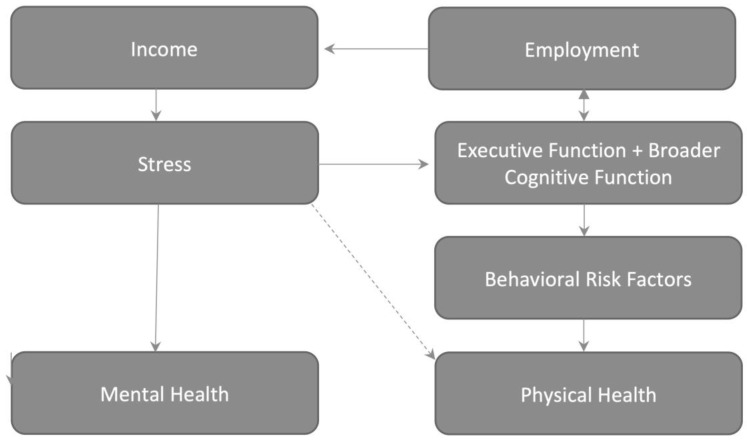Figure 2.
The conceptual model used prior to the Delphi method. When this model underwent review in the National Institute on Aging, reviewers were concerned about the sequencing of events, and asked that it be revised. In this model, income is derived from incentive payments and employment. This increases income thereby reducing psychological stress [13]. Reductions in psychological stress influence physical and mental health via allostatic load [22] while also producing synergies with the executive function training program to reduce neural damage and improve executive function, thereby improving work performance and behavioral risk factors [30,31]. Here, executive function (e.g., the ability to plan and execute those plans) was separated from broader cognitive function to show how employment can enhance broader cognitive skillsets, such as math [31].

